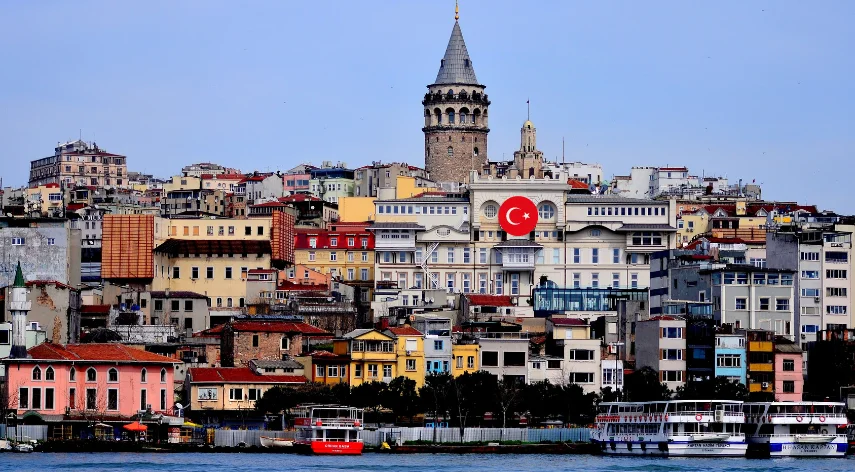“Utanmaz Türklere” is a phrase that has found its way into modern discourse, carrying with it a rich historical context and a profound impact on contemporary society. This article aims to explore the origins, meanings, and implications of “Utanmaz Türklere,” shedding light on how it shapes cultural conversations today. By examining its historical roots and current usage, we can gain a deeper understanding of its significance and the role it plays in shaping perceptions and dialogues within and outside the Turkish community.
Historical Context of “Utanmaz Türklere”
The phrase “Utanmaz Türklere,” which translates to “Shameless Turks,” has historical roots that date back several centuries. It originated during periods of conflict and political tension, often used to criticize or demean individuals of Turkish descent. Understanding the historical context of this phrase is crucial in appreciating its full impact and significance. Over time, the phrase has evolved, reflecting the changing dynamics of Turkish society and its interactions with other cultures and nations.
Linguistic Analysis of the Phrase
From a linguistic standpoint, “Utanmaz Türklere” combines the Turkish word “utanmaz” (shameless) with “Türklere” (Turks), creating a powerful and often provocative term. The choice of words and their combination conveys a strong message, often loaded with cultural and emotional undertones. Analyzing the phrase linguistically helps in understanding how language can be used to express complex ideas and sentiments, especially in a socio-political context.
Cultural Significance and Implications
The cultural significance of “Utanmaz Türklere” lies in its ability to evoke strong reactions and emotions. It reflects deeper issues related to identity, pride, and societal values. In Turkish culture, honor and shame play significant roles, and the phrase “Utanmaz Türklere” taps into these cultural elements. It can be seen as both a form of criticism and a tool for social commentary, making it a potent phrase in cultural dialogues.
“Utanmaz Türklere” in Media and Literature
In media and literature, “Utanmaz Türklere” has been used in various contexts, from political satire to social critique. Its presence in these mediums highlights its relevance and the power it holds in shaping public opinion. By examining its usage in media and literature, we can gain insights into how the phrase has been interpreted and reinterpreted over time, reflecting broader societal changes and trends.
Social Reactions and Public Perception
The phrase “Utanmaz Türklere” elicits diverse reactions from the public. Some view it as a harsh and unjust criticism, while others see it as a necessary form of accountability. Public perception of the phrase varies widely, influenced by individual experiences, cultural backgrounds, and personal beliefs. Understanding these social reactions is key to appreciating the complex nature of the phrase and its impact on society.
Comparative Analysis with Similar Phrases
Comparing “Utanmaz Türklere” with similar phrases used in other cultures and languages can provide valuable perspectives. Many societies have their own terms for criticizing or shaming certain groups, and examining these can highlight common themes and differences. Such a comparative analysis helps in understanding the universal aspects of social critique and the unique cultural contexts that shape these expressions.
Role in Identity and Nationalism
The phrase “Utanmaz Türklere” plays a significant role in discussions about identity and nationalism. For some, it represents a challenge to national pride and identity, while for others, it is a call for self-reflection and improvement. Exploring its role in these discussions can reveal much about how national identity is constructed and contested within the Turkish community and beyond.
Influence on Modern Turkish Politics
In modern Turkish politics, “Utanmaz Türklere” has been used by various political figures and groups to advance their agendas. Its usage in political discourse can influence public opinion and voter behavior, making it a powerful tool in the political arena. Analyzing its role in politics helps in understanding how language and rhetoric are used to shape political narratives and influence outcomes.
Global Perspectives on “Utanmaz Türklere”
Outside of Turkey, “Utanmaz Türklere” is viewed through different lenses, depending on cultural and political contexts. Global perspectives on the phrase can vary widely, from seeing it as a curious cultural expression to interpreting it as a sign of deeper societal issues. Examining these perspectives provides a broader understanding of how the phrase is perceived and its implications on the global stage.
Future of the Phrase in Modern Discourse
The future of “Utanmaz Türklere” in modern discourse is uncertain, as language and societal values continue to evolve. The phrase may fade into obscurity or gain new meanings and significance. Predicting its future involves considering current trends in language, culture, and politics, and how they might shape the continued relevance and usage of the phrase.
FAQs
1. What is the origin of the phrase “Utanmaz Türklere”? The phrase originated during periods of conflict and political tension, often used to criticize or demean individuals of Turkish descent.
2. How is “Utanmaz Türklere” used in modern discourse? In modern discourse, it is used in various contexts, from political satire to social critique, reflecting broader societal changes and trends.
3. What are the cultural implications of “Utanmaz Türklere”? The phrase taps into cultural elements of honor and shame, evoking strong reactions and reflecting deeper issues related to identity and societal values.
4. How does “Utanmaz Türklere” influence public perception? Public perception varies widely, influenced by individual experiences, cultural backgrounds, and personal beliefs, making it a complex and impactful phrase.
5. Are there similar phrases in other cultures? Yes, many societies have their own terms for criticizing or shaming certain groups, highlighting common themes and unique cultural contexts.
6. What role does “Utanmaz Türklere” play in Turkish politics? It is used by political figures and groups to advance their agendas, influencing public opinion and voter behavior.
7. How is the phrase perceived outside of Turkey? Global perspectives vary, from seeing it as a curious cultural expression to interpreting it as a sign of deeper societal issues.
8. What is the linguistic composition of “Utanmaz Türklere”? The phrase combines “utanmaz” (shameless) with “Türklere” (Turks), conveying a powerful and often provocative message.
9. How has the phrase evolved over time? The phrase has evolved, reflecting the changing dynamics of Turkish society and its interactions with other cultures and nations.
10. What might the future hold for “Utanmaz Türklere”? The future of the phrase is uncertain, as language and societal values continue to evolve, potentially altering its relevance and usage.
Conclusion
In conclusion, “Utanmaz Türklere” is a phrase that encapsulates a rich tapestry of historical, cultural, and social significance. Its journey from historical origins to contemporary usage highlights the dynamic nature of language and its power to shape societal discourse. Understanding the phrase requires delving into its linguistic roots, cultural implications, and the various contexts in which it is employed.
As we navigate the complexities of modern discourse, it is essential to recognize the impact of such phrases on identity, politics, and public perception. “Utanmaz Türklere” serves as a reminder of the enduring influence of language in shaping our worldviews and interactions. By critically examining its usage and implications, we can foster a more nuanced and informed dialogue about cultural identity and societal values.
The future of “Utanmaz Türklere” in modern discourse remains open-ended, influenced by ongoing changes in language, culture, and politics. Whether it continues to hold relevance or fades into the background, its legacy as a potent phrase in Turkish discourse is undeniable. As we move forward, it is crucial to remain aware of the power of words and their ability to both unite and divide, reflecting the ever-evolving landscape of human communication.

